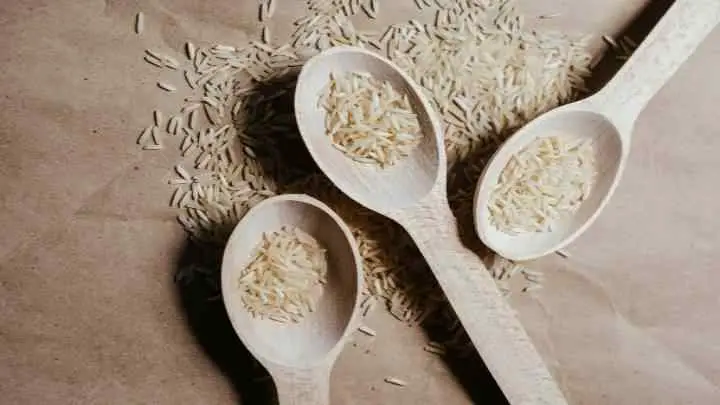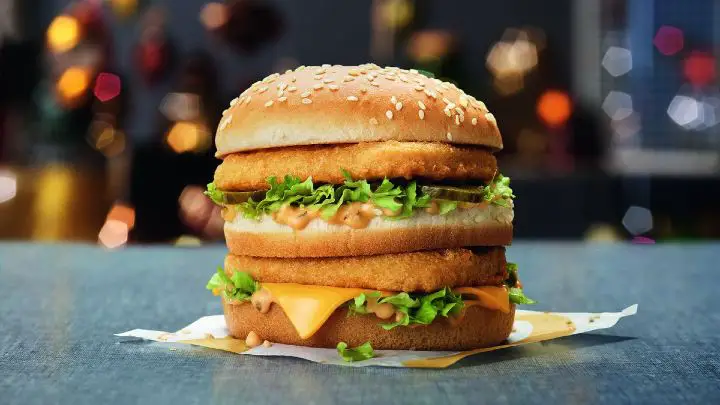Rice does not make you gain weight. However, eating rice in excess may aid in weight gain. Rice contains vitamins and minerals such as Vitamin B and Magnesium, which are essential to the weight loss routine. But note that no particular food is tailored for weight loss or gain.
Nutritionists suggest a low-calorie and low-fat diet for weight loss, and rice perfectly fits this standard. Rice is gluten-free, low in fat, and easy to digest, which means it is excellent for boosting the body’s metabolic rate and, in turn, accelerates weight loss.
In this article, I shall highlight rice’s benefits, side effects, and how to consume rice to fit weight control diets.
How to Make Your Rice Healthy for Weight Control
Here are a few helpful tips to keep in mind to control weight gain;
1. Check Your Portion
The first thing you should keep in mind if you are planning to lose a few pounds is to check the ratio or portion of rice you consume. Always consume small amounts and avoid pairing your white rice with other carbohydrates or fat-filled meals.
2. Cook in a Different Way
The best way to discard the high carbohydrate contents in rice is to cook them healthily. You can soak the rice for a few hours per boil and discard the water. Also, ensure you avoid frying your rice or adding too much fat-filled substance such as ghee or oil, which might add to the calories in the rice.
3. Add Vegetables
One of the best ways to boost your rice’s nutritional value is to pair a small portion with vegetables or add vegetables to your delicacies like tossed rice or rice salad.
SEE: Mistakes To Avoid When Cooking Vegetables
White Rice and Brown Rice Comparison: Which is Better for Weight Loss?
White Rice is a refined grain with no germ and bran. It is especially very sweet, which may lead to frequent consumption or overeating and eventually cause obesity and other chronic diseases. While brown rice, on the other hand, is a whole grain with essential nutrients, it has a nutritious germ and fiber-filled bran. They contain more fiber and antioxidants, which are needed by the cells in your body.
Heavy processing during milling often removes the nutritious layer in rice, which makes it lack essential vitamins and minerals. White rice is neither favorable nor harmful for weight loss if consumed proportionally, but it may result in unforeseen side effects if taken in excess.
Since brown rice is whole grain, it is more nutritious and contains low-carb contents, which many dietitians recommend for people on the weight loss track. Hence, brown rice is good for weight loss.
To sum it up, brown rice is better for weight loss and management as it is a healthier option.
SEE: If Brown Rice Will Make You Gain Weight
Which Other Type of Rice Is Suitable for Weight Loss?
Generally, when choosing the best rice for weight loss, you must focus on the calorific value and the nutrients to be gained. It is ideal to choose from the whole grain section, such as; Red rice, Black rice, and other unprocessed grain. They are rich in fiber and antioxidants and are better for weight loss.
SEE: If Green Tea is Good for Weight Loss
What are the Benefits of Eating Rice
1. They are Gluten-free
People often think rice contains gluten, but the reverse is the case. Rice is gluten-free, and it is recommended as helps to reduce the risk of constipation and bloating after eating.
2. Moderated Weight Gain
Rice is a better addition to your weight diet as it digests quickly, is free of cholesterol, and is low in fat, making it an ideal choice if you want to control your weight.
3. Improves Cholesterol Level
According to the United State Department of Agriculture, there is no cholesterol in all rice produced, lowering the risk of heart disease, stroke, and obesity.
4. Helps Regulate Blood Temperature
Most short-grain rice, such as white rice, is starchy. The starch present helps in regulating the body temperature and also helps in treating fever.
Side Effects of Eating Rice
Eating rice is likely safe, but like every good thing, there are little side effects associated with it. Here are some minor side effects of eating rice.
1. May Cause Flatulence
Rice makes your stomach full easily and you may feel bloated afterward. Although rice digests quickly, going to bed straight after eating rice is not good as it may make you flatulate.
2. Increases Sugar Level
Rice contains a high quantity of starch which increases the sugar level in the body, hence it is advisable for diabetic individuals not to take it.
Rice Substitutes That Can Aid Weight Loss
Here are some substitutes you can use in place of rice to reduce your intake of rice and help in your journey to lose weight.
- Barley
- Orzo
- Rice broccoli
- Quinoa
- Shredded cabbage
- Sweet potatoes.
SEE: The Difference Between Sushi Rice and White Rice
How to Store Rice
For uncooked rice, you can store them in a cool, dry place in a tightly closed container that keeps out dust and moisture. This way you can store your dry rice for as long as two years.
For cooked rice, you can store them in a freezer and make sure the rice cools as quickly as possible. Afterward, store them properly in a container or air-tight bag before keeping them in the freezer. You can store cooked rice in the fridge for 5 – 7 days.
Is fridge-stored rice still healthy?
Yes, it is. As long as the rice is not stored for more than seven days in the fridge, it is healthy. But once leftover rice has been stored for more than seven days, it should be thrown away as the rice may have built up bacteria that might be poisonous.
FAQs
How much rice should you eat per day to lose weight?
The right amount should be around half a plate, which is a moderate amount for weight loss. If you eat a whole plate of rice, you would be consuming about 440 calories.
Does rice make your belly fat?
Nutritionist says that people who consume more refined and processed grain like white rice may risk having belly fat. But eating whole grain is much safer.
Is white rice bad for weight loss?
Only when eaten consistently and in large quantity, moderate intake has no positive or negative effect on your weight gain journey.
Conclusion: Is Rice Bad for Weight Loss
In all honesty, rice is one of the best choices for weight loss, but always remember to moderate your rations. Excess intake may be disadvantageous to your body.
According to Precision Nutrition, one or two cups of rice containing about 100 to 200 calories is more than enough for daily intake to stay healthy.
I hope you enjoyed reading this article. If you are a true lover of rice then you should see if jasmine rice is good for diabetics.
Thank you for your time.







